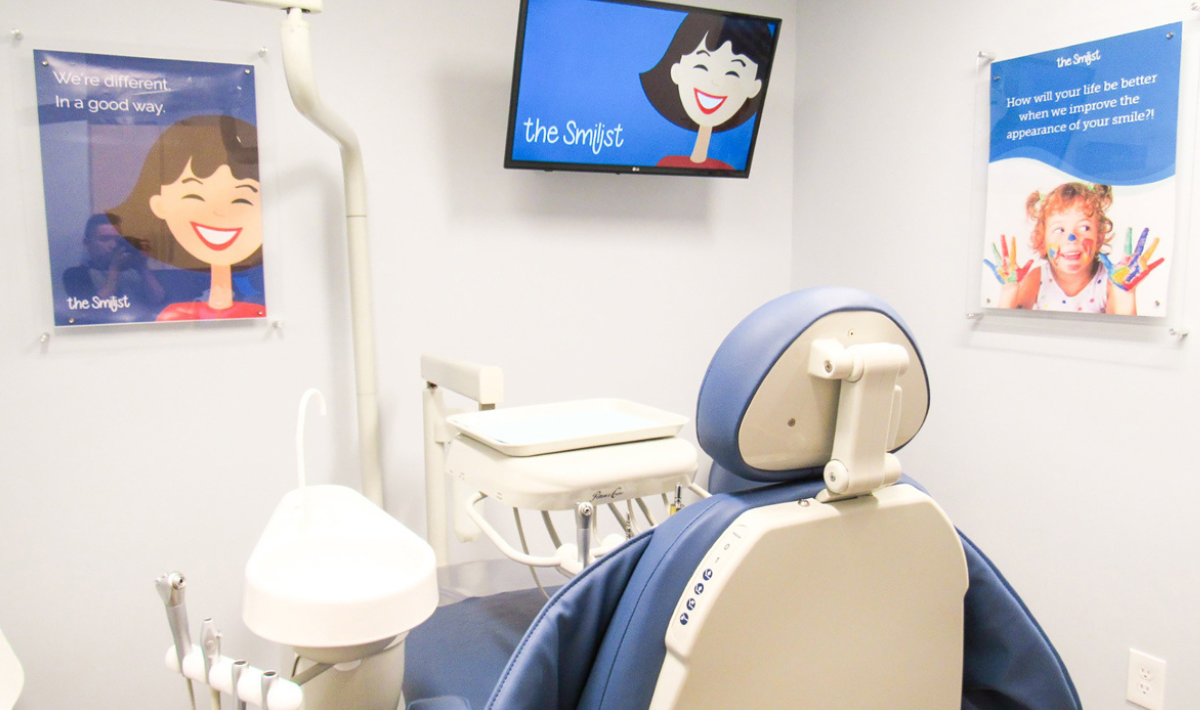Philip Toh discusses the use of AI technology at the Smilist and how the technology has the potential to revolutionize the industry.
Artificial intelligence (AI), or technology’s ability to complete tasks that traditionally require human intelligence, is revolutionizing the way businesses approach daily tasks and challenges. So, what exactly is AI, and how are dental support organizations (DSO) taking advantage of the technology?
AI algorithms can learn, process, and understand new information similar to the way the human brain does. For example, using computer vision on already existing visuals, such as X-rays, AI can help dentists identify abnormalities that may only be partially visible to the human eye. The technology can analyze patient dental records, inform diagnoses, and advise the development of treatment plans. AI is also beneficial to dental practices because it has the ability to perform operational responsibilities and assist in automating day-to-day tasks.
Philip Toh, the Co-founder and President of “the Smilist,” has researched ways that AI and other advanced technologies can be best utilized to better deliver patient experiences. The Smilist was founded in 2014 and has grown to over 65 locations across the Northeast, including in the states of New York, New Jersey, Pennsylvania, Connecticut, and Delaware.
Toh, in his current role as President, works to modernize the Smilist practices and promote better
patient outcomes and experiences through technology.
“There are a lot of technologies that are now available in the marketplace. Sometimes in business, we focus on the urgent needs, but not necessarily the important needs. In my position, I get the opportunity to focus on identifying these technologies, how we can adopt them, and how we can deliver better clinical care and run a better business,” said Toh.
Predictable, affordable dental care
The Smilist is a comprehensive family dentistry practice that offers patients services including routine teeth cleaning, teeth whitening, dental implants, tooth extractions, sleep apnea solutions, Invisalign, and braces.
At the Smilist, dentists and staff take advantage of technology and AI to assist with both clinical care and operational tasks. In terms of clinical care, technology can assist with digital impressions, 3D printing and milling. Examples of operational tasks include patient engagement, patient payments, insurance, and appointment scheduling.
“AI is most commonly thought of in dentistry as a tool that can be used to assist dentists to read X-rays. AI can in fact inform clinicians by analyzing and identifying certain abnormalities in patient X-rays. It also translates clinical findings for patients so that it is easy to understand. This allows dentists to plan their day and anticipate potential challenges,” said Toh. “The other aspect that AI can assist with is creating underlying data. With our consolidated single practice management system, we’re able to do all sorts of analytics, such as treatment, outcomes, insurance, payment, and appointment information to improve the way we deliver our services.”
Integrating the latest technological advances into clinical and business processes allows the Smilist to stay up to date on current industry trends and stand out from competitors. Automation allows staff to more effectively complete tasks, and as a result, staff can focus more on creating positive patient interactions.
Implementing AI technology will without a doubt change business processes and culture because of its ability to streamline and simplify existing workflows. Dentists are used to certain ways of completing tasks, and some individuals may have reservations about what modernization through AI could mean for their job security.
“One of the worries with AI technology is that people anticipate that the technology may replace them and their job. The primary challenge is having people understand that technology is complementary. It makes dentists and staff more efficient instead of replacing the human aspect of business. In reality, it’s a tool that enables people to focus on what they love and drop what they don’t,” said Toh.
AI and the dental industry
Before dental support organizations consider implementing AI technology into their practice, they should determine the cost-effectiveness, the dependability, and the applicability of certain models and decide if it will work for the needs of their practice.
AI is beneficial, as it can recognize a wide range of dental conditions, improve dental care by reinforcing dentist’s work, and reaffirms a dentist’s confidence when making treatment decisions. The technology can also assist dentists on the operational side and assist them in creating a clearer picture of their business needs, revenue streams, and patient populations.
“AI will continue to be able to do more and raise people to the top of their license by giving them more confidence,” said Toh. “Making everyone more efficient will free up time to see more patients enabling greater patient access that many patients otherwise wouldn’t have.”
As technology continues to advance, artificial intelligence in dentistry will become increasingly commonplace. The capabilities of AI will continue to improve as the systems develop, and the technology will continue to assist dentists with navigating industry challenges.
“I’m super excited about the future of AI. We don’t want to be left behind, and as an organization continue to be at the forefront of technology and how it will help us run better dental practices,” said Toh. “For us culturally as an organization, technology will continue to be a key part of delivering exceptional patient experiences.”






